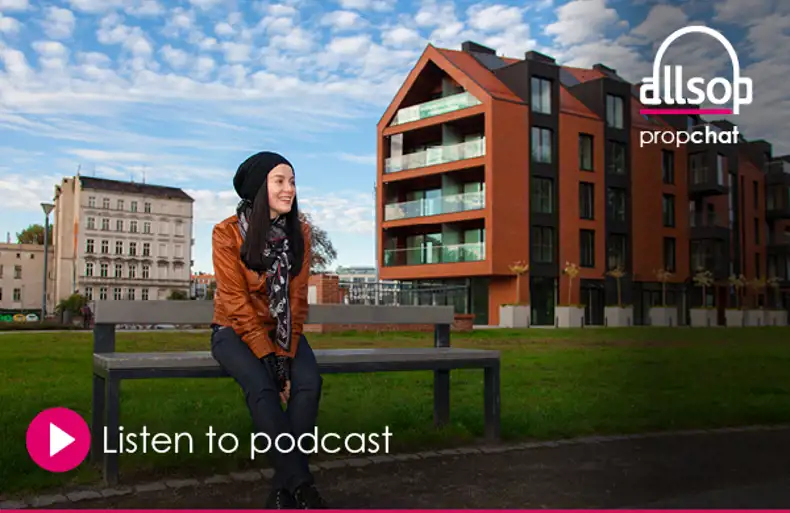In December, Allsop attended the Property Week Student Accommodation Conference and here are our key takeaways.
Political landscape and student housing
The Conservative Party’s main agenda for the Higher Education (HE) sector over the next parliament is to retain and build upon the world renowned reputation of HE in the UK. The government will seek further investment into local economies from international students and look at ways of reducing interest rates on student debt. There will also be a drive to provide a better deal for those who don’t go to university by encouraging more students to attend college and take up apprenticeships. One key initiative is the introduction and growth of degree apprenticeships and these are expected to grow in popularity.
It is anticipated that leaving the EU is likely to have both a positive and negative impact on the sector. Figure 1 below shows the mass increase of international students coming to study in the UK since 1981. The Higher Education Policy Institute (HEPI) predict a fall of 31,000 EU students coming to the UK to study following Brexit, equalling a decrease of 57% and a loss of £40m in fees. This is a result of the anticipated changes to tuition fees and loan entitlements after the UK leaves the EU.
However to offset the likely reduction in EU student numbers, HEPI predicts an increase of 20,000 non-EU international students (9% uplift) raising an additional £225m in tuition fees. HEPI are predicting higher uptake as a consequence of a favourable exchange rate. This equates to an overall loss of 11,000 students but an increased fee income of £185m.

Figure 1
Changes in HE / accommodation
In August 2019, UCAS reported a record 39.5% of 18-year olds applying to university, up from 38.1% the previous year. During 2017-18 50% of the population aged 17-30 were either at university or had graduated from university. Students are also studying for longer because of the growth of masters degrees and universities have seemingly moved away from the idea of two-year degree courses. The Augar Independent panel report of post-18 education and funding review of higher education concludes there is a lack of transparency of costs and profit in the sector and the need for change in this regard.
The widening divide between the top tier and bottom tier universities since the removal of the cap on student numbers in 2014 is a hot topic. Data shows that top tier universities are increasing their student intake while bottom tier universities are struggling to compete; in the last five years the top five universities have grown their student intake by 46% and the bottom five have lost 30%.
The Purpose-Built Student Accommodation (PBSA) sector is booming and there is now 660,000 operational beds across the UK. Approximately 32,000 new private (not university operated) PBSA beds entered the market in 2019, subsequently the market comprises 50/50 private vs university. It is estimated that 7,000 beds were ‘retired’ last year due to their poor condition and this provides great opportunity for investors to purchase and provide 2nd generation upgrades.
Last year Liverpool saw the highest number of beds brought to market outside of London. Some markets are reportedly reaching an oversupply such as Liverpool, Sheffield and Newcastle. Others such as Manchester and Bristol require development. This point highlights a maturing and ever complicating market place.
27 PBSA developments suffered from late delivery last year, almost one third of all those being constructed, and the sector has been question on its professionalism as a result. There is a consensus that developers are pushing timescales to the detriment of the final product and ultimately the consumer.
Wellbeing
This issue is not going to be resolved overnight, but the sector is talking more and the introduction of new policies and guidance have already had a positive impact with mental wellbeing in particular a highly prominent topic amongst owners and operators.
There are positive improvements from the use of wellbeing ambassadors in PBSA and the monitoring of students isolating themselves. There is a mutually agreed position as a sector of a clear requirement for consistency for the measurement of wellbeing moving forwards.
AffordabilityThe quality of accommodation is rising but the issue of affordability is difficult to resolve. Currently only 6% of private PBSA meets the level of affordability (50% of full maintenance loan of £8,000). On average 73% of the student loan is used for accommodation. As an industry, it is difficult to meet the level of affordable rent when the cost of construction on a per bed basis is approximately £60,000 plus the cost of land (although this varies significantly throughout the country). It is agreed that clearer communication between university and private providers is required before any move towards legislation enforcing affordable rents.
So, what is the answer? There was discussion centred on the potential role of universities and the range of accommodation options they provide. Should there be more pressure on universities to offer affordable rental products? Other options include, providing no ensuite rooms, there is a clear market for this, as well as, refurbishing 2nd generation stock rather than building new.
The future
The market is going to continue to expand with a further 300,000 university spaces required by 2030 (HEPI) to meet demand, partly driven by an increase in the number of years students are spending at university. As a professional industry there is a need to be transparent and focus on providing more affordable rental products and improving wellbeing at the same time. The industry has suffered reputational damage and is quickly learning from the late delivery of new schemes. In the future, there is potential for developers to face penalties for late deliveries, particularly where it impacts directly on the student.
There are calls for more collaboration, knowledge sharing and stronger consumer relations in order to solve the challenges we are facing as a sector.




